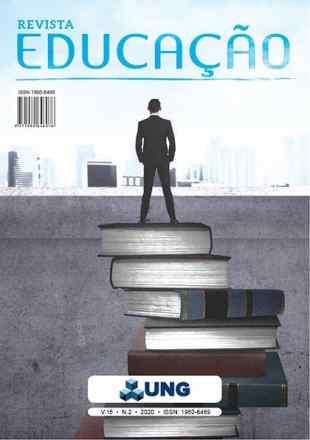SURDOS QUE VIVEM NO INTERIOR E A INTERIORIZAÇÃO DA LÍNGUA DE SINAIS: UMA REVISÃO SISTEMÁTICA DE LITERATURA
Revista Educação UNG-Ser
SURDOS QUE VIVEM NO INTERIOR E A INTERIORIZAÇÃO DA LÍNGUA DE SINAIS: UMA REVISÃO SISTEMÁTICA DE LITERATURA
Autor Correspondente: Anabela Cruz-Santos | [email protected]
Palavras-chave: Educação de surdos. Interior. Interiorização. Libras. Surdos.
Resumos Cadastrados
Resumo Português:
Os surdos que vivem no interior passam por muitos desafios específicos que são distintos daqueles enfrentados pelos seus pares nas grandes cidades. O objetivo desse trabalho é fazer uma revisão sistemática de literatura referente aos surdos que usam língua de sinais e vivem nas pequenas cidades do interior, procurando analisar os desafios peculiares que as pessoas surdas que vivem nessas cidades enfrentam quanto a sua escolarização, o acesso e a qualidade dos serviços oferecidos. Nessa revisão, analisamos 8 artigos científicos disponíveis online, enquadrados em qualquer tipo de abordagem metodológica, publicados entre 2000 a 2020 em inglês e português, nas bases de dados da Web of Science, Scopus; SciELO e Google Scholar. Definimos um protocolo de revisão que orientou todo o processo de identificação, avaliação, inclusão e análise dos textos. Na fase de identificação encontramos 171 artigos nas bases de dados. Na fase de avaliação e categorização excluímos os artigos repetidos e fora do escopo e após análise dos resumos excluímos os artigos que possuíam objetivo, participantes e lócus diferente do estabelecido no protocolo, chegando a 89 artigos. Ao aplicar os critérios finais de inclusão e exclusão do protocolo, o número de artigos foi reduzido a 12. Por fim, os 12 artigos foram submetidos aos critérios de elegibilidade final com a leitura completa do texto e 8 artigos foram selecionados para esta revisão. Concluímos que pesquisas sobre a situação dos surdos que vivem no interior são preocupação de investigadores de diversos países. Que no interior, a educação de surdos ocorre em meio a desafios bastante peculiares e que há um descompasso entre a situação educacional e linguística dos surdos que vivem no interior com seus pares nas grandes cidades.
Resumo Inglês:
Deaf people living in small inner cities face many specifics challenges than others deaf people from big cities. This paper presents a systematic review regarding deaf people who use sign language and live in small inner cities, trying to analyze the peculiar challenges that deaf people in these cities face about their schooling, access and quality of the services offered. In this review, we analyzed 8 scientific articles available on the internet, framed in any kind of methodologic approach, published between 2000 to 2020 in English and Portuguese in the following databases: Web of Science, Scopus; SciELO and Google Scholar. We defined a review protocol that guided the entire process of identification, inclusion and analyses of the articles. In the identification phase we found 171 papers in the databases. In the evaluation and categorization phase we excluded papers repeated and outside of the proposed target and after analyzing the abstracts we excluded the articles that according with objectives, participants, and location weren’t compatible to the protocol. We followed the protocol criteria selection and obtained 12 articles. Finally, these 12 articles have been analyzed by final eligibility criteria with the complete reading of the text and 8 articles were selected for this review. We concluded that researchers from many countries are searching about the situation of the deaf people that live in small inner cities. Furthermore, this review shows that in the inner cities, deaf education occurs in the middle of peculiars challenges and there´s a mismatch between the educational and linguistic situation of the deaf that live in inner city and their peers in the big cities.

